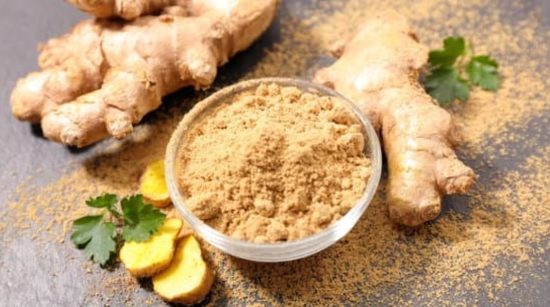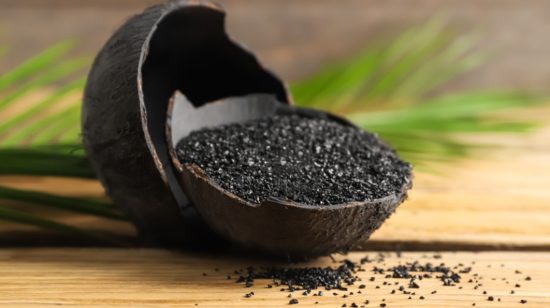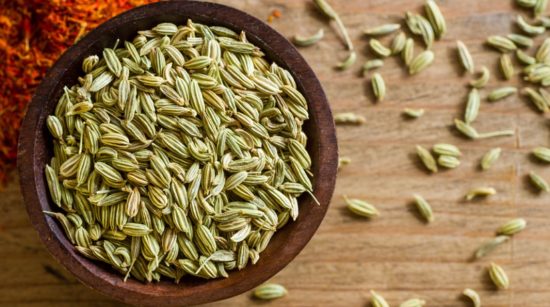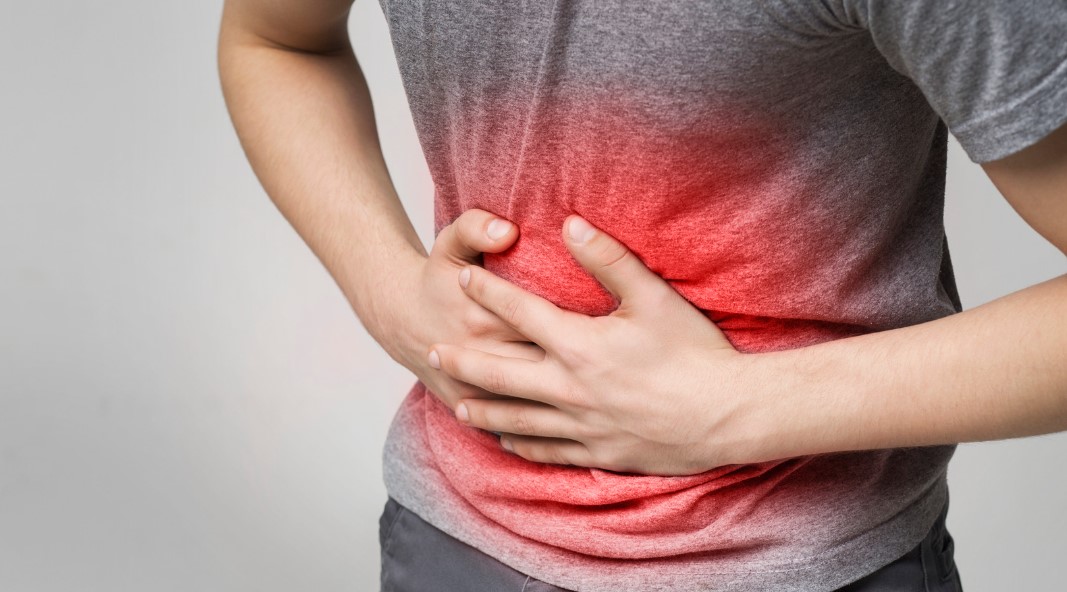Are you suffering from the discomfort and bloating caused by excessive gas in your stomach? Don’t worry, you’re not alone! We’ve all experienced that embarrassing moment when our stomach starts making strange noises at the most inconvenient times. But fear not because we have some instant remedies that will help you bid farewell to those pesky gas bubbles.
In this blog post, we’ll explore how to remove gas from your stomach instantly so you can get back to feeling light and comfortable. Say goodbye to awkward belly rumblings and hello to a happier digestive system! So, let’s dive right in and discover these natural methods for instant relief.
What Causes Gas Buildup in the Stomach?

There are several factors that can contribute to this unpleasant sensation:
- Swallowing air too quickly while eating or drinking leads to bloating and discomfort.
- Consumption of certain foods high in fibre, such as beans, lentils, broccoli, and cabbage, which can produce more gas when broken down by gut bacteria.
- Intake of carbonated beverages, like soda or sparkling water, which introduce extra gases into the digestive system.
- Poor digestion is where the body struggles to break down sugars and carbohydrates, resulting in fermentation in the intestines and the production of gases like methane and hydrogen.
- Gastrointestinal conditions like irritable bowel syndrome (IBS) or inflammatory bowel disease (IBD) may contribute to excessive gas production due to imbalances in gut bacteria or inflammation in the digestive tract.
How to Remove Gas from Stomach Instantly?
1. Peppermint Tea

Peppermint tea is a popular herbal remedy that can help alleviate gas and bloating in the stomach. It contains menthol, which has antispasmodic properties that can relax the muscles of the gastrointestinal tract. When consumed, peppermint tea helps to soothe the digestive system and reduce inflammation. It also aids in digestion by stimulating bile flow, which helps break down fats more efficiently.
To make peppermint tea at home, simply steep one teaspoon of dried peppermint leaves or a few fresh mint leaves in a cup of hot water for about 10 minutes. Strain out the leaves and enjoy your revitalizing cup of tea.
Drinking peppermint tea after meals can help prevent gas buildup by promoting better digestion. The warm liquid relaxes the muscles of the intestines and allows trapped gas to be released more easily.
2. Ginger

Ginger, with its natural anti-inflammatory properties, is a fantastic remedy for relieving gas and bloating. This versatile root has been used for centuries in traditional medicine to soothe digestive issues.
One way to use ginger for instant relief from gas is by making a simple ginger tea. Just peel and grate a small piece of fresh ginger root and steep it in hot water for about 10 minutes. You can also add some honey or lemon juice to enhance the taste if desired.
Another option is to chew on a small piece of raw ginger after meals. The active compounds in ginger help stimulate digestion and reduce the formation of gas in the stomach.
If you prefer a more convenient option, there are also ginger supplements available in capsule form that can be taken with meals or when experiencing discomfort. Incorporating ginger into your diet regularly can not only help alleviate gas but also offer numerous other health benefits due to its antioxidant and antimicrobial properties.
3. Activated Charcoal

Activated charcoal is a natural remedy that has gained popularity for its ability to alleviate gas and bloating in the stomach. It works by binding to toxins and gases, thereby reducing their presence in the digestive system.
One of the main benefits of activated charcoal is its adsorption properties. When ingested, it can attract and trap gas molecules within its pores, preventing them from causing discomfort in the stomach. This makes it an effective solution for relieving symptoms of indigestion and flatulence.
To use activated charcoal for gas relief, you can take it in capsule or powder form. Follow the instructions on the packaging or consult a healthcare professional for dosage recommendations.
It’s important to note that activated charcoal should not be taken within two hours of medication or supplements as it may interfere with their absorption. Additionally, long-term use of activated charcoal may lead to constipation or interfere with nutrient absorption, so it should be used sparingly and under professional guidance.
4. Fennel Seeds

Fennel seeds, known for their aromatic flavour and medicinal properties, have long been used to alleviate digestive issues, including gas and bloating. These tiny seeds are packed with essential oils that can help relax the muscles in your gastrointestinal tract, reducing gas buildup.
One of the easiest ways to consume fennel seeds is by chewing on them directly after a meal. The act of chewing stimulates saliva production, which in turn aids digestion and helps relieve gas.
Another popular method is making fennel seed tea. Crush a tablespoon of fennel seeds and add them to boiling water. Let it steep for 10-15 minutes before straining out the seeds. Sip this warm tea after meals to promote better digestion and relieve stomach discomfort.
If you don’t enjoy the taste of fennel, you can also find fennel seed capsules or supplements at health food stores. These provide a convenient way to incorporate fennel into your routine without having to chew or brew it.
5. Warm Lemon Water

Warm lemon water is a natural remedy that can help alleviate gas and bloating in the stomach instantly. The acidic nature of lemons stimulates the production of digestive juices, which aids in breaking down food and reducing gas buildup.
To prepare warm lemon water, squeeze the juice of half a lemon into a cup of warm water. It’s important to use warm water rather than cold or hot to avoid shocking your system. Sip on this soothing beverage slowly to allow it to work its magic.
Lemons are also rich in vitamin C, which has antioxidant properties that support overall digestive health. Additionally, they have detoxifying effects on the body, helping flush out toxins that may contribute to gas and bloating.
Drinking warm lemon water regularly can not only help with immediate relief from gas but also prevent future occurrences by improving digestion. It’s a simple and refreshing way to keep your stomach happy and healthy.
6. Simethicone
![]()
Simethicone is a popular over-the-counter medication that can provide quick relief from gas and bloating. It works by breaking down larger gas bubbles in the stomach, making them easier to pass. Simethicone comes in various forms, such as chewable tablets, liquid drops, or gel capsules.
To use simethicone for instant gas relief, follow the instructions on the packaging. Typically, you’ll take it after meals or at bedtime, depending on your symptoms. The dosage may vary based on age and condition, so it’s important to read the label carefully.
Simethicone is generally safe for most people and rarely causes side effects. However, if you have any underlying medical conditions or are taking other medications, it’s always best to consult with your healthcare provider before using simethicone.
Remember that while simethicone may offer temporary relief from gas symptoms instantly, it should not be used as a long-term solution without addressing potential underlying issues causing excessive gas production
7. Over-the-Counter Medications

Over-the-counter medications can provide quick relief from gas buildup in the stomach. These medications are easily accessible and don’t require a prescription. They work by breaking down the gas bubbles in your digestive system, allowing them to be expelled more easily.
One popular over-the-counter option is antacids that contain ingredients like magnesium hydroxide or aluminium hydroxide. These substances neutralize stomach acid and can help alleviate symptoms of indigestion or heartburn that may be contributing to excess gas.
It’s important to follow the instructions on these medications carefully and not exceed the recommended dosage. If you have any underlying medical conditions or are taking other medications, it’s always best to consult with a healthcare professional before using over-the-counter remedies for gas relief.
8. Yoga Poses

Yoga has been practised for centuries and is known to provide numerous health benefits, including relieving gas and bloating. Certain yoga poses can help stimulate digestion, reduce inflammation in the gut, and release trapped gas from the stomach.
Here are some effective yoga poses that can provide instant relief from gas:
- Child’s Pose: Kneel and lower your torso until your forehead touches the ground, arms extended. Massages the abdomen, promoting relaxation and gas release.
- Cat-Cow Pose: On all fours, arch your back downwards while inhaling (cow pose), then round your back upwards while exhaling (cat pose). Massages digestive organs.
- Wind-Relieving Pose: Lie flat, bend one knee towards the chest, clasping it with both hands. Hold, then switch sides.
- Downward Facing Dog: Start on all fours, lift onto toes and straighten legs while pushing hips upward into an inverted V shape. Improves abdominal circulation for digestion.
Consistency is key when practising these yoga poses for relieving gas buildup in the stomach. Incorporate them into your routine for optimal results.
9. Acupressure Points

Acupressure is an ancient healing technique that involves applying pressure to specific points on the body to relieve various ailments, including gas buildup in the stomach. By stimulating these acupressure points, you can help alleviate discomfort and promote better digestion.
One effective acupressure point for relieving gas is located two finger-widths below your navel. Apply gentle but firm pressure using your fingertips for a few minutes while taking slow, deep breaths. This helps stimulate the digestive system and release trapped gas.
Another point that can provide relief is located on the inner part of your forearm, about three finger-widths above your wrist crease. Pressing this point gently with your thumb in a circular motion can help ease bloating and reduce stomach discomfort.
By incorporating these acupressure techniques into your routine, you may find some much-needed relief from gas buildup in your stomach. However, keep in mind that individual experiences may vary, so it’s essential to listen to your body and seek professional medical advice if necessary.
10. Deep Breathing Exercises

Deep breathing exercises can be a simple yet effective way to alleviate gas buildup in the stomach instantly. By focusing on your breath and practising specific techniques, you can promote relaxation and encourage the release of trapped gas.
Find a peaceful, cosy area where you can sit or lie down to start. Shut your eyes and inhale deeply through your nose, allowing the air to fill your belly. Hold for a few seconds, then exhale slowly through your mouth, pushing out all the air.
Continue this pattern of deep inhales and slow exhales for several minutes. As you breathe deeply, visualize tension leaving your body with each exhalation. This mindful approach helps to calm both the mind and digestive system.
By incorporating these deep breathing exercises into your daily routine or using them when experiencing gas discomfort, you may find relief from bloating and abdominal pressure without relying solely on medications or invasive treatments.
When Should You Seek Medical Help for Gas Issues?
While occasional gas is a normal part of digestion, persistent or severe gas can be a cause for concern. If you’re experiencing frequent and intense gas that interferes with your daily activities, it may be time to seek medical help.
- Gas accompanied by symptoms like abdominal pain, bloating, diarrhoea, or constipation could signal underlying digestive disorders like IBS or IBD.
- Sudden changes in bowel habits alongside excessive gas may indicate conditions such as lactose intolerance or celiac disease.
- Persistent gas could be linked to serious issues like intestinal obstruction or gallbladder problems, especially if accompanied by severe pain.
- If over-the-counter remedies and lifestyle changes haven’t relieved symptoms within a reasonable timeframe, seeking medical assistance is advisable.
- Consulting with a healthcare professional ensures proper diagnosis and tailored treatment for effective management of gas-related issues.
Keep in mind that every person has a unique body, so what suits one may not suit another. In matters concerning your health, it’s always advisable to err on the side of caution.
Conclusion
In conclusion, there are several simple and effective ways to relieve gas from the stomach instantly. From dietary changes to natural remedies and over-the-counter medications, finding the right method for you can provide quick relief and improve overall digestion. It’s important to listen to your body and make necessary adjustments in order to prevent gas buildup in the future.
By incorporating these tips into your routine, you can find fast and lasting relief from uncomfortable stomach bloating caused by excess gas. Remember to consult a healthcare professional if you experience persistent or severe symptoms.
FAQs – How to Remove Gas from Stomach Instantly?
What is the best thing to drink to get rid of gas?
Peppermint tea is often considered one of the best drinks to relieve gas due to its ability to relax the muscles of the gastrointestinal tract. Ginger tea and chamomile tea may also help reduce gas.
Why do I feel a fart, but it won’t come out?
This feeling can occur when gas gets trapped in the intestines or when the muscles that help pass gas are not functioning properly. Factors like diet, digestion issues, or intestinal obstruction can contribute to this sensation.
Is it normal to have gas in the stomach?
Yes, it is normal to have some amount of gas in the stomach and the digestive system. Gas is produced during digestion and can be expelled as burps or flatulence. However, excessive or persistent gas accompanied by discomfort may indicate an underlying issue.
What foods should I avoid if I have gas?
Foods known to cause gas vary from person to person, but common culprits include beans, lentils, broccoli, cabbage, onions, carbonated drinks, and artificial sweeteners. It’s recommended to observe your reactions to different foods and identify those that trigger your gas symptoms.
Are any home remedies dangerous for gas?
While most home remedies for gas relief are safe, it’s important to use caution and follow recommended guidelines. Some natural remedies may not be suitable for everyone, especially those with specific medical conditions or who are taking certain medications. If unsure, consult with a healthcare professional.

